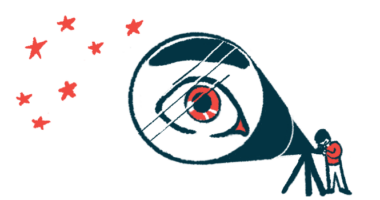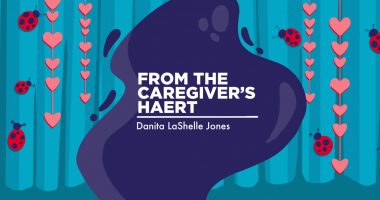Learning to embrace my support team after an HAE diagnosis
How opening our world to others helped us fill in the gaps and manage our lives

There we were, down to the last few turns of one of the most intense games I’d ever played. My formidable opponent? My unbeatable mother. I’d spent years trying to win against her, but there I was, mere points away from doing something I never thought I could do: beat her at Scrabble.
Although I’d been concentrating on playing with all the correct words, I failed to realize that some critical letters had yet to be pulled from the velvet bag of vowels and consonants. It didn’t matter to me. I knew only three or four tiles remained in the bag, and I’d already decided I’d make quick work of them when it was my turn.
My heart sank, however, when I pulled the remaining tiles: Z, Q, X, and J. Those high-scoring letters are exciting if you get them at the beginning of the game, but at the end, with little to no space left on the board, they’re the kiss of death.
In Scrabble, every letter tile is worth a certain number of points, ranging from 0 to 10. To win the game, players must use all their tiles first by placing letters on the board to spell words. Any letters left at the end of the game become points that are subtracted from players’ final scores.
Mathematically, my four tiles to my mother’s seven shouldn’t have worried me. But Z, Q, X, and J were all I had. I had no vowels, supporting letters, or spaces on the board to take advantage of. What I did have, unfortunately, was 36 points in tiles that would end up working against me.
I lost to my mother again that day. But I realized something about the game itself. Sure, winning Scrabble is based on a great ability to spell and the luck of the draw, but when using the more awkward letters of the alphabet, you can only win if you have the supporting letters.
Learning to ask for help
When our daughter, whom we lovingly refer to as Ladybug, was diagnosed with hereditary angioedema (HAE), we initially kept the diagnosis private. I incorrectly assumed that such a diagnosis would be a quick fix, even after it took so long to get answers.
Before long, it became painfully apparent that even though my husband, Paul, and I were trained in administering preventive medicine like Haegarda, Takhzyro (lanadelumab), and her emergency medication, Berinert, and even though we had notes from doctors and conferences with teachers down to a science, we were in over our heads.
There were times when I was with Ladybug at the hospital and Paul was stuck at work, and we needed someone to meet our other children when they got off the bus. There were days when doctor appointments took us out of town, but we still had errands to complete in the city and projects to finish, or our other children needed to be dropped off at art or kung fu.
When managing a child with HAE, navigating the journey alone is impossible. You need “supporting letters.”
But unlike in Scrabble, where we have to blindly reach into a velvet bag to pull the support we need, we could ask people we trusted to help us. So instead of worrying about an after-school pickup, I’d call my father, who was happy to help. Likewise, if we were going to be tied up on the weekend and needed food brought to the house, my in-laws were glad to come to the rescue.
And it’s not just family. A helpful neighbor has mowed our lawn, kept an eye on the house, or picked up our mail. Friends have had food delivered, sent comfort blankets for those cold hospital nights, or just offered encouraging words. Of course, finding medical support is essential, but finding friends and family to support is equally as necessary.
When faced with those HAE letters, there was a moment when I thought so much was impossible and all was lost. But now that I’ve begun to embrace our support system, we win a little more each day.
Note: Angioedema News is strictly a news and information website about the disease. It does not provide medical advice, diagnosis, or treatment. This content is not intended to be a substitute for professional medical advice, diagnosis, or treatment. Always seek the advice of your physician or other qualified health provider with any questions you may have regarding a medical condition. Never disregard professional medical advice or delay in seeking it because of something you have read on this website. The opinions expressed in this column are not those of Angioedema News or its parent company, BioNews, and are intended to spark discussion about issues pertaining to angioedema.








Comments